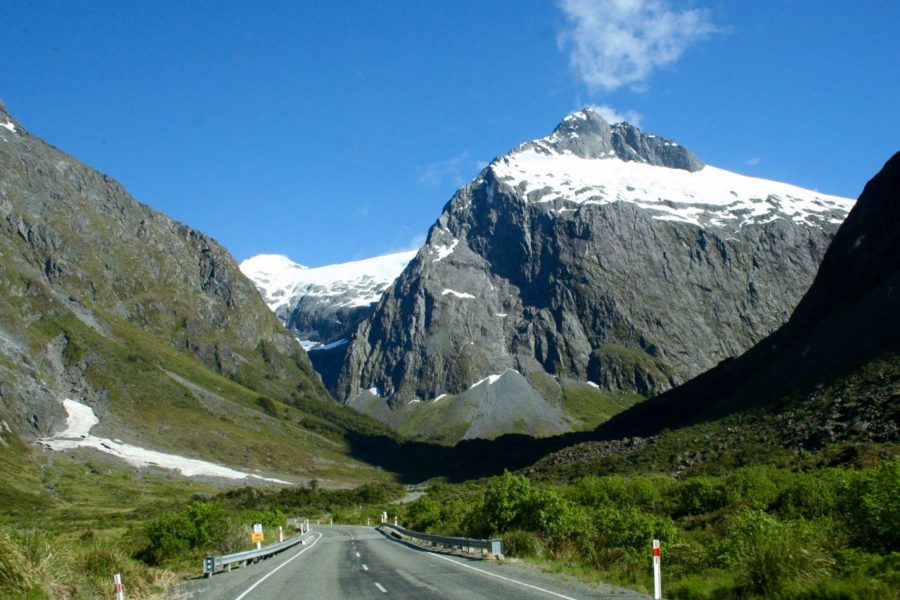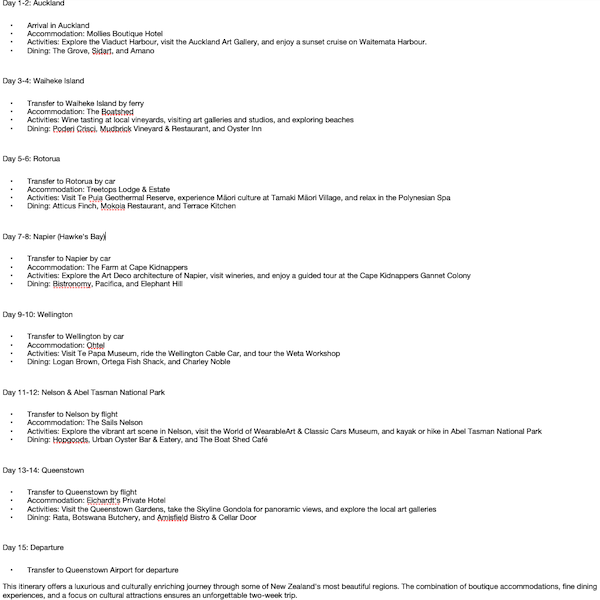22nd March 2023 By Paul Yandall | paul@tourismticker.com | @tourismticker
The artificial intelligence revolution could be transformational for tourism with new tools and insights helping the industry decarbonise and become more responsive, writes the Ticker’s Paul Yandall.

If you have been testing the newly released ChatGPT-4 in recent days you will have seen some remarkable capabilities and, if you work in media or content creation, I’m sure you would have felt both a thrill and a shiver – probably at the same time!
Some of its output is outstanding, especially from a consumer point of view when it comes to travel. When asked to create a two-week itinerary for a trip to New Zealand preferring boutique accommodation, fine dining and cultural experiences, it took about 10 seconds to complete:

It’s not perfect and not the highly specialised service you can get from an inbounder but it is a pretty good place to start, especially for about 30 seconds of effort.
My first instinct was to ask ChatGPT-4 to book it all but it is not yet connected to the internet or the necessary travel and accommodation services. But how long will it be before that capability is available? ChatGPT-6? Where will that leave ITOs, OTAs and operators? How can they position themselves to ensure they are advantaged by AI and not neglected?
One question immediately raised by the above itinerary is: how did ChatGPT-4 decide to serve up those specific operators and experiences? Being a large language model, the terms it uses are selected on a statistical basis so will Mollies Hotel Auckland always be its top recommendation for a boutique hotel in Auckland? The hotel does not appear anywhere near the top of either Bing (which is owned by Microsoft, a backer of ChatGTP owner OpenAI) or Google’s search results for ‘Auckland boutique hotel’ (Update c/o Gina Paladini highlighting the risk of using old information: Mollies Boutique Hotel was bought years ago and has been converted back to a private home).
Admittedly, ChatGPT has been trained on information available mainly before September 2021, so how malleable will its top recommendations be when it or its future upgrades are eventually connected to the internet? Could it create another auction house like search for businesses keen to buy prominence?
For destination marketers, below is ChatGPT’s answer to a basic request to ‘create a marketing plan to convince Aucklanders to visit Nelson’ – again, it took about 10 seconds to write:

There’s nothing there that a professional wouldn’t know but when I asked ChatGPT-4 to make a top recommendation to help the plan stand out, this was its answer:

Which, of course, makes perfect sense. But what is remarkable is do you notice how the VR suggestion is not part of the original marketing plan? There is not even a hint of it. It almost feels like ChatGPT-4 ‘understands’ the VR strategy to be a little extraordinary when it comes to formulating a destination marketing plan and not something to simply serve up at first prompt. Of course, it is a large language model so it does not ‘understand’ marketing plans and strategy prioritisation but its potential as a useful tool is clear.
Now, can you imagine an even ‘smarter’ AI connected to the internet and live databases and services providing connected real-time information about your target markets? One that can understand your prompts and queries to help your business or destination become more efficient and responsive?
Imagine how AI could help us design, create and market more sustainable tourism products and experiences. Could it support travel and tourism to decarbonise much faster than expected?
Of course, there will be disruption. There will be tasks that will be taken over by AI but the hope will be that people will be reassigned to higher-order jobs unable to be performed by a machine.
Fortunately, tourism’s foundation of location specific and experiential products means the sector may be less disrupted than others. But the tools that will surely become available for tasks like product design, data analysis, sales and marketing strategy, and investment priorities could be transformational for professionals.
Journalism and content creation may fare worse, but I’m confident there will be a place for good industry information served with human insight… at least until ChatGPT-7?
I’ll let the AI have the last word on the impact it could have on New Zealand’s tourism industry:
